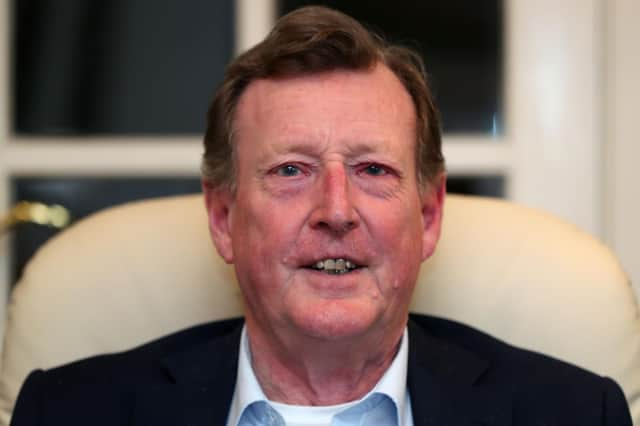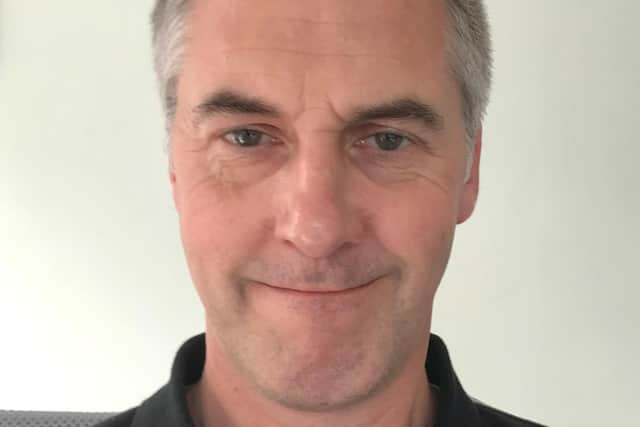David Trimble: The most glowing tributes will come from historians about Good Friday Agreement key figure - Barry White


I wrote to him earlier this month to pass on my best wishes and to say thanks for the six and a half years I spent heading the Ulster Unionist Party’s Westminster office, a
tenure which began in those heady summer days of 1997.


David and I shared a room for the first 12 months, which was useful for my learning curve. The initial few days flew by. I was just excited to be there. Then, on 16 June, I received a call from David’s wife Daphne. Two police officers had been shot dead at close range by republicans in Lurgan, part of David’s Upper Bann constituency.
Advertisement
Hide AdAdvertisement
Hide AdFive young children were left without a father. David was on his way to London from Belfast and I was tasked with updating him.
The following day, Mo Mowlam, the Northern Ireland Secretary, arrived to brief David on the incident. There were just the three of us in the room. The reality of what I was now involved in felt close to overwhelming.
But so was my determination to do some good.
There were 10 Ulster Unionist MPs back then, most holding what can best be described as “sceptical” views about achieving a lasting peace in their beloved
Province. This was understandable. They had attended far too many funerals to feel otherwise.
Advertisement
Hide AdAdvertisement
Hide AdDavid Trimble was no different. In 1983, he heard the IRA gunshots which killed his fellow law lecturer and close friend Edgar Graham in the grounds of Queen’s University, Belfast. He later identified the body.
And yet there was a wariness amongst his colleagues that David was prepared to “sell Ulster out” as one of them never tired of telling me.
I was fortunate to be in the Ulster Unionist team room on 10 April 1998 when the final text of what became the Good Friday Agreement arrived. I had a quick skim through before David asked for my opinion. I told him I had concerns around the early release of terrorist prisoners. He said he understood but added: “This is about giving the people of Northern Ireland a chance.” That was good enough for me.
When he presented the document to the wider gathering, telling them he was minded to go for it, a Belfast city councillor asked: “But Leader, what if you’re
wrong?”
Advertisement
Hide AdAdvertisement
Hide AdThere was a pause, before David replied calmly: “Everyone is expendable.”
The coming months brought pluses and minuses for him. Sharing the Nobel Peace Prize with SDLP Leader John Hume in late 1998 was clearly a high. Less positive were the efforts of a considerable proportion of Ulster Unionists to derail what David was seeking to achieve. Six of the party’s 10 MPs campaigned for a No vote in the
referendum on the deal.
Four seats were lost at the 2001 General Election. I was at David’s count in Banbridge. As we left the building, we were confronted by an anti-Agreement mob
hellbent on attacking David and Daphne.
I joined the human ring of steel and helped push them into the armoured car. I still have a photograph of that moment hanging my wall, signed with thanks by David. It was given to me in 2003 when I finally left Westminster to work in Yorkshire.
The remaining MPs also gave me a signed card.
David’s message read: “Not everyone is expendable.”
Advertisement
Hide AdAdvertisement
Hide AdWe kept in touch in subsequent years. In 2005, I persuaded him to travel north to deliver a lecture on the theme of partnership. He went down well, including in a taxi ride from the Royal Armouries to Leeds train station with the much-missed Yorkshire Post legend Tom Richmond.
David returned the following year to speak at a fundraising dinner I organised at The Leeds Club, again with Tom in attendance.
Those visits were sandwiched by two phone calls of note. The first was when he said he would soon be in the area and asked if I could join the Ulster Unionist team in crisis talks at Leeds Castle. I said there were two problems.
First, I was technically a civil servant and would probably be sacked. And second, Leeds Castle is actually in Kent.
Advertisement
Hide AdAdvertisement
Hide AdHis other call was made with an air of uncharacteristic panic in his voice. Pursuing one of his lesser-known hobbies, David had managed to crash a canal boat in deepest West Yorkshire and the authorities were on their way.
Would I be available to deal with any media kerfuffle should word get out? I said I would, but thankfully my services were not required.
Because of Covid, it was July 2019 when I last saw David in person so I am glad I wrote to him one final time.
David Trimble has received many worthy tributes this week. But I am certain the most glowing are yet to come as historians gain a much deeper appreciation of his doggedness, his fortitude and his unbreakable commitment to peace.
